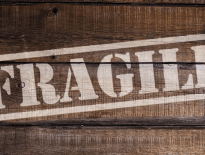
Breaking the Cycle of Weakness-Shaming: Political Disgusts (Part 4)
This article is the latest in my series on political disgusts (see part 1, part 2, and part 3 here). I don’t tell a lot of my story this time. But you’ll see that it is connected—I grew up among those who had a deep disgust for Nazis (which meant we always laughed when Harrison Ford would say things in the Indiana Jones movies like “Nazis. I hate these guys”). In this article I’ll talk about how, after much reflection, I’ve decided to embrace this socialized desire to stop Nazi-type behaviors (but still struggle to avoid the pure hatred of the people part). I also discuss how my research into stress and trauma has helped me understand the societal trends that led to the birth of the Nazis–especially those surrounding their views of trauma as weakness–better. And I feel a broader need to offer suggestions toward stopping those trends as well.
I grew up being asked to do more than my fair share of overempathizing and listening to others (I talk about that here). So I refuse to accept the dichotomy that understanding people’s points means you never stand up against bad practices.
Because of all of that, here is an article in which I argue that we all need to stop our socialized bad practices about ignoring trauma and seeing trauma as weakness only. At the same time, we definitely need to work on holding people accountable for their actions that lead to trauma.
Some Preliminary Analysis
I think as a matter of triage we need most to fight the most active and intentional forms of weakness-shaming such as those found in the types of societies that encourage Nazis and other unhealthy beliefs that thrive on putting people down in order for others to feel better about themselves. I’ll unwrap that a bit below. But ultimately, we also need to fight weakness-shaming where we find it in ourselves and others as well, especially when it comes to internalized fears about seeking the right kind of help to make things better. And we need to restructure our society so we can have a healthy view of strength and weakness, or these problems will keep recurring in our societies.
So yes, just a light article, eh? 😉 No point in putting it off—let’s dive in.
As one does when one studies, teaches, and writes about stress, trauma, and conflict communication, I was doing some *light reading* on stress and trauma disorders this weekend, and came across this:
“Denial of the consequences of trauma can wreak havoc with the social fabric of society. The refusal to face the damage caused by the war and the intolerance of ‘weakness’ played an important role in the rise of fascism and militarism around the world in the 1930s. The extortionate war reparations of the Treaty of Versailles further humiliated an already disgraced Germany. German society, in turn, dealt ruthlessly with its own traumatized war veterans, who were treated as inferior creatures. This cascade of humiliations of the powerless set the stage for the ultimate debasement of human rights under the Nazi regime: the moral justification for the strong to vanquish the inferior—the rationale for the ensuing war.”
—Ground-breaking and well-respected trauma researcher Bessel Van der Kolk in his book The Body Keeps the Score: Brain, Mind, and Body in the Healing of Trauma (2014)
Shame Vs. Guilt
Shame and vulnerability researcher Brené Brown has confirmed in her book Daring Greatly (a book I encourage everyone to read!) that weakness and trauma are among the #1 shame triggers in the US, and that it never fixes things or helps when people feel shame (which she defines as thinking “I am bad”) instead of guilt (which she distinguishes as thinking “I did something bad”).
If everyone who feels uncomfortable with their own weaknesses goes around telling others they are weak, that’s just digging into shame triggers and adding to people’s stress loads.
Guilt, Shame, and Agency
As Brown points out, guilt can be productive. Shame is rarely productive. As students learn in my communication classes, this distinction is why it tends to be more effective to draw attention to “areas for improvement” or to draw attention to specific behavioral changes than it is to deride people as personally weak in any way.
If you phrase things as though someone is weak as part of their identity, you give them no way to change their behavior. And naturally, that’s stressful.
Brown gives us some helpful shame resilience techniques to start digging out of the hole of inaction that is shame, and we can help others with it as well.
But her suggestions wisely don’t include using language that could easily be taken as shaming. Because that’s too often counterproductive. If someone’s already shame-spiraling, adding to their feelings of inaction are unlikely to lead them on the road to agency.
Trauma, Stress, and Shame
As Van der Kolk points out in his book mentioned above, trauma is a way the body adapts when it’s processed a lot of stress in a situation where it feels overwhelmed and without recourse to process the stress.
In other words, a situation where a person feels unsupported and without the mental and physical resources to deal with the situation. This situation that’s ripe for feeling shame even without societal stigma. In fact, trauma is usually attached to internalized shame. The fact that we further stigmatize people who have experienced trauma as shameful definitely does not help with the recovery process.
Post-Traumatic Growth Vs. the Stigma of Trauma
The thing is, trauma doesn’t need to be something that’s shameful—on the contrary, great traumas can also lead to a phenomenon called post-traumatic growth. And even when there are negative attributes of trauma, the lens of trauma can allow for people to have strengths of clearer vision as well as negative unhealthy patterns. (NOTE: Those who cause trauma ought not to use post-traumatic growth to excuse their part in creating trauma, and we do need to hold them accountable for those actions.)
But if trauma is treated shamefully as only a weakness, and with no space for agency to rebuild toward health and strength, it can create as negative a spiral as there was in Germany in the 1930s. (And yes, as someone who studies this stuff, I very much see these things being mirrored in our current communication climate from the highest levels on down. We are not living in 1930s Germany, but when people say it reminds them of those times, this is a big part of what they mean.)
The Cycle of Trauma–and How We Can Stop It
Traumatized people don’t always traumatize people, but some of them do. Those who are surrounded with societal attitudes that they are inherently weak for being traumatized are much more likely to try to push away their own shame by trying to shame and traumatize others.
And if they do that–or even support such rhetoric and actions by those who enact it, including in policy–consistently from positions of influence, a lot of people can be hurt.
As Van der Kolk noted, that situation was the case in 1930s Germany, and some variation of that has happened in other dictatorships and fascist regimes around the world.
It takes assertive action to stop all the parts of that cycle, from the political to the organizational to the interpersonal. That assertiveness can take a variety of forms, and as I’ve said before, I find it important to triage how strongly our assertive actions are depending on the egregiousness of the emergency and the pattern and levels of perceived intentionality of the shaming and/or traumatizing of others.
Growing Up with WWII Resistance Stories
Since I’m part Dutch-American, I grew up helpfully with stories of assertive folk who in the extreme human rights crisis of WWII stood in the gap for the vulnerable at great risk of their own lives, and I always deeply wondered whether I would answer the call if such an opportunity arose.
Those were great lessons from my childhood, and I’m thankful for my home community for telling them to me and making me wonder. I feel like all of my experiences and research since then have thankfully gotten me closer to that moment than I ever have been before, and I hope a bunch of us will stand up against human rights violations wherever we find them in hopes of creating a better world.
What We Can Do Going Forward
Here’s what I see as the priority in our current US and world climate: when people reinforce norms about strength and weakness into national rhetoric in harmful ways, and accrete them into policies that add to the trauma cycle, we need to stand up against that rhetoric and policies in strong ways. And we need to resist the dehumanization of those who will suffer most from policies.
On a more interpersonal level, we also need to normalize it, and see it as a rational strength, to go to therapy for lots of stress, just as we would go to a physical therapist for a pulled muscle. And we need to ask each other to educate themselves and seek therapy and other solutions for themselves as needed. And to fight for policies that remove barriers to trauma care in all reaches of society.
I’ve got a busy week and this was pretty heavy, so I’ll leave it here.
Final Action Items
So this is today’s reminder that in these toxic and tumultuous times, let’s please please please try not to shame anyone as weak if we can help it, shall we?
And remember: self-care and asking for help alike are a couple of the key ways we can maintain our strength to keep going! Don’t let anyone shame you for them, but be reasonable—not everyone’s a safe space. It’s okay to vet people for safety.
Also, if you want to share this message with others, share this article, but I’ve also made an easily shareable meme on Facebook for you–feel free to click through to pass it on!
Our Natural Limitations—and What We Can Do When Others Cross Them
There’s no way to stop people entirely from taking things as shame, but we can linguistically phrase things differently, and that can help.
And if someone shames you or another group for weakness, you can and should in most cases assertively ask for respect. Boundaries are key to stem the flow of toxic behavior.
We can do this thing! Go team #AssertiveSpirituality!
(Looking for more in-depth advice on how to handle conflict, and want to know more about its stress basis? Sign up for our weekly email newsletter in the top bar at AssertiveSpirituality.com and you’ll receive weekly updates of news and blog content as well as a link to the free “Assertive Spirituality Guide to Online Trolls” in the final welcome email. If you stay subscribed, we’ll update you when we expand this project into other more in-depth educational experiences as well.)


2 thoughts on “Breaking the Cycle of Weakness-Shaming: Political Disgusts (Part 4)”
An interesting idea, linking shame and trauma.
Thanks! The study of both is connected by stress research, so it was a natural fit.